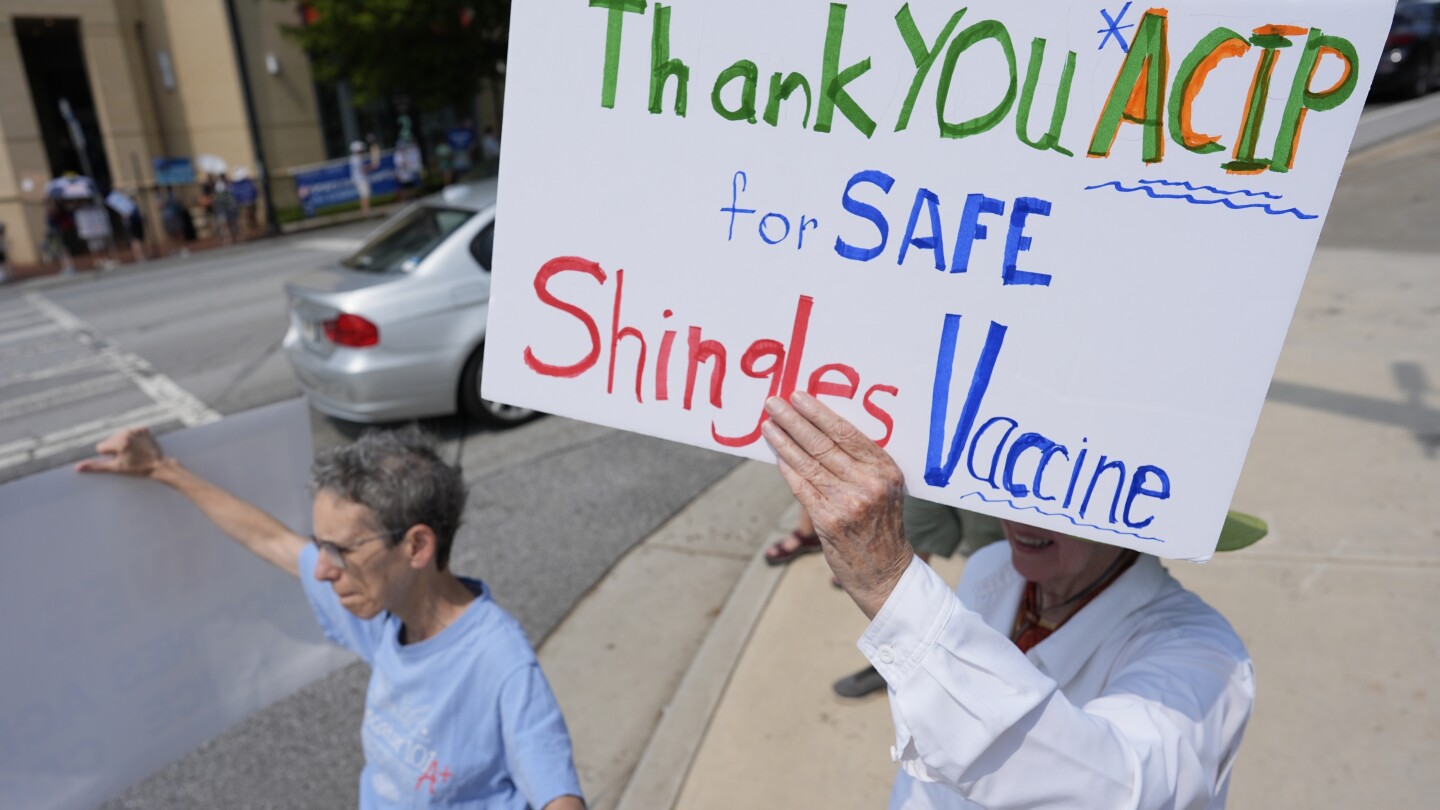CDC ACIP committee expected to vote on hepatitis B and chickenpox vaccines
ATLANTA (AP) — Health Secretary Robert F. Kennedy Jr.’s new vaccine advisory committee meets Thursday to begin a two-day session focused on shots against COVID-19, hepatitis B and chickenpox.
Votes are expected Thursday afternoon on hepatitis B and on a combined shot against measles, mumps, rubella and chickenpox, but Department of Health and Human Services officials have not said exactly what proposals would be considered.
Information on the meeting agenda suggests the committee may be poised to roll back — at least partly — a longstanding recommendation that all U.S. children get an initial dose of hepatitis B vaccine right after birth.
The American Academy of Pediatrics and many public health officials support that decades-old practice.
Dr. Mysheika Roberts, health department director in Columbus, Ohio, said rates of the liver disease among children have dropped tremendously since it was put into place.
“I don’t understand the rationale of why we would stop providing that vaccine and that guidance to babies when we’ve seen such great progress in that area,” said Roberts, who was scheduled to join the vaccine panel but was dismissed by Kennedy. “If it’s not broken, why change it?”
The committee’s chair, Martin Kulldorff, also has raised the idea of recommending the MMRV combination shot not be given to children younger than 4. In a June presentation to the committee, he discussed rare instances of feverish seizures that have been associated with the first dose, given to kids between ages 1 and 2.
The ACIP last dealt with the issue in 2009, when it said either the combination shot or separate MMR and varicella shots were acceptable for the first dose. Today, most pediatricians suggest separate doses for the first round and give the combined shot for the second dose, pediatrics experts say.
Some doctors and public health experts say they are not aware of any new safety data that would explain the revisiting of those vaccination recommendations. They worry that the panel is raising unwarranted new questions about vaccines in the minds of parents, and that it may limit the ability of families to get their children protected.
The panel, the Advisory Committee on Immunization Practices, makes recommendations to the director of the Centers for Disease Control and Prevention on how already-approved vaccines should be used. CDC directors have almost always accepted those recommendations, which are widely heeded by doctors and guide vaccination programs.
Kennedy, a leading antivaccine activist before becoming the nation’s top health official, fired the entire 17-member panel earlier this year and replaced it with a group that includes several anti-vaccine voices. On Monday, HHS announced the addition of five more people, some of them noted skeptics of COVID-19 vaccinations or pandemic prevention measures.
Doctors’ groups and public health organizations have voiced alarm about Kennedy and his new panel. Concern intensified in May, when Kennedy announced he was removing COVID-19 shots from the CDC’s recommendations for healthy children and pregnant women. The move was heavily criticized by doctors’ groups and public health organizations, and prompted a lawsuit by the American Academy of Pediatrics and other groups.
The committee is scheduled to make COVID-19 vaccine recommendations on Friday.
The AAP and some others groups have issued their own vaccination recommendations, which disagree with recommendations put out by federal officials this year.
In recent weeks, several states have announced policies to help residents maintain access to vaccines, in some cases signing orders that ensure COVID-19 vaccinations at pharmacies without individual prescriptions. Wisconsin this week joined a list of more than a dozen to take steps, when Gov. Tony Evers signed an executive order for state health officials to follow the guidance of national physician organizations.
___
Ungar reported from Louisville, Kentucky.
___
The Associated Press Health and Science Department receives support from the Howard Hughes Medical Institute’s Department of Science Education and the Robert Wood Johnson Foundation. The AP is solely responsible for all content.


